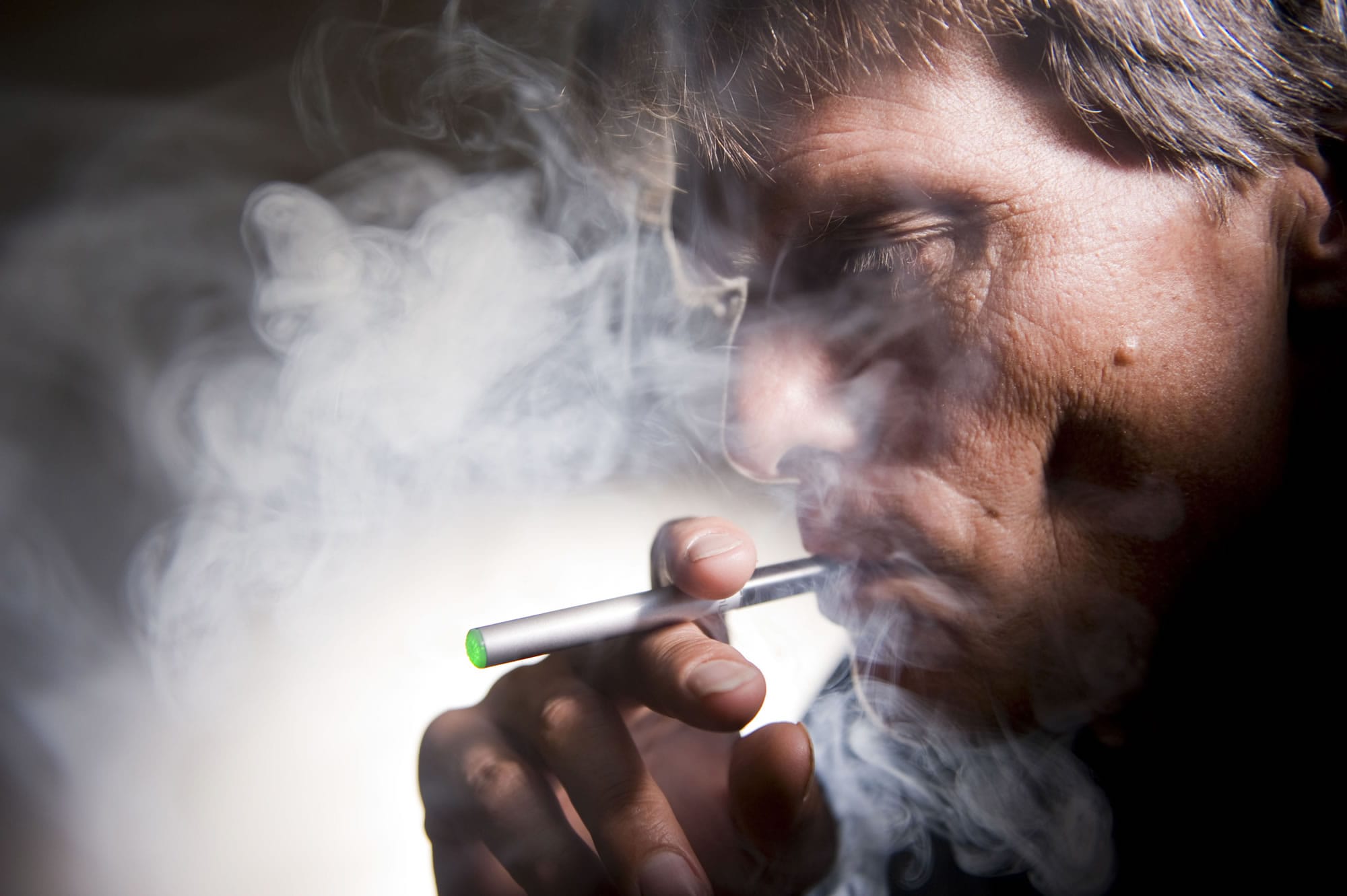LOS ANGELES — Saturday was supposed to be a big day for Billy DePalma.
He envisioned a ribbon-cutting and then a steady stream of new customers perusing colorful, pen-shaped electronic cigarettes behind glass cases. They’d gawk at his impressive selection of liquid nicotine — flavors like Hubba Bubba Grape, Gummy Bear and Orange Cream Soda — as he fielded questions about the fast-growing trend of “vaping,” so-called because users inhale the vapor produced when the liquid is heated.
Instead, drywall litters the floor of his dark shop. And all he can do is wait.
Days before his shop was to open, Seal Beach passed a 45-day moratorium halting any new e-cigarette and smoke shops from opening in the small beach community.
Seal Beach is one of a growing number of California cities now grappling with what to do about the booming storefront businesses.
With fresh memories of how rapidly marijuana dispensaries multiplied and generated controversy, many cities want to slow the spread of electronic cigarette stores until they can figure out the ramifications. It’s a fast-growing business: A report by Wells Fargo Securities this summer estimated brick-and-mortar sales for e-cigarettes will top $1 billion this year and bring in an additional $700 million in online sales.
For many, vaping is a way to cut back on smoking. For others it’s a trendy option that offers varied flavors similar to hookahs and lacks the smell left behind by cigarettes. Although businesses and cities are starting to look at e-cigarettes more closely, the devices can still be used at many more places than allow smoking.
Although the U.S. Food and Drug Administration hasn’t weighed in on the effects of secondhand vapor, the essentially odorless cloud is far less noticeable than exhaled smoke.
But as with pot shops, some have raised concerns about the potential clientele of electronic cigarette stores. And an even larger debate hinges on whether the myriad restrictions that many cities impose on smokers should also apply to vapers.
For Jim Basham, Seal Beach’s director of community development, the distinguishing line between pot dispensaries and vaping outlets is a bit blurry. He’s seen e-cigarette stores evolve into hemp shops — and draw with them a ragtag crowd.
“You have other folks with different intentions,” Basham said, “and you can have secondary adverse effects, like crime.”
Collin Spencer — who owns a Temple City smoke shop where a black T-shirt emblazoned with “Star Wars'” most famous face and the words “Darth Vapor” hangs from the wall — laughs off claims that shops like his are a magnet for sketchy characters.
“They’re definitely not going to be hanging outside the vapor store begging for change to get their next e-cigarette,” he said of the clientele at OG Smoke Shop. “I think the idea that putting one of these in causes crime … is the most ludicrous part of the debate.”
In August, Temple City passed a zoning ordinance that keeps all smoke shops, including those that sell only e-cigarettes, at least 1,000 feet from parks and schools. About a month earlier, Duarte passed an urgency ordinance that temporarily halted any new shops from opening there. And last Tuesday, the city of Pico Rivera passed an ordinance that treats the vapor devices like traditional cigarettes.
A common type of electronic cigarette sold at the stores looks more like a pen. When you press a button on the side of the gadget, it heats up the “juice,” the term commonly used to describe the flavored liquids. The flavors range from tobacco to fruity and come with various levels of nicotine, including none at all. A deep drag of vapor from the device, which plugs into a USB port when it needs recharging and sells for about $30, feels almost like smoking a conventional cigarette. (A disposable version costs about $10.) Users pay to refill their liquid.
The FDA regulates only electronic cigarettes marketed for therapeutic purposes, said Stephanie Yao, a spokeswoman for the agency. She added: “Further research is needed to assess the potential public health benefits and risks of electronic cigarettes.”
A 2009 FDA analysis of e-cigarettes found that they contained carcinogens and toxic chemicals, such as an ingredient used in antifreeze.
Some city officials said they want more information about the devices and their health effects.
“I’m not saying you’re going to die and go to hell if you use them,” said Pico Rivera Councilman Gregory Salcido, who backed the city’s decision to treat the devices as regular cigarettes. “But we don’t know enough about them, and as a result we’re going to cover our bases.”



